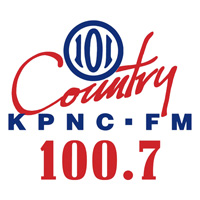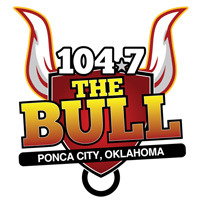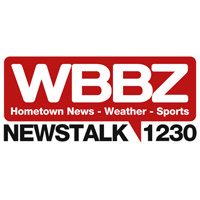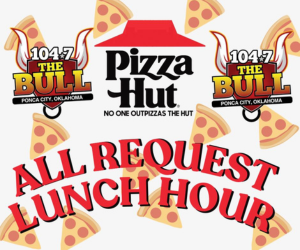(OKLAHOMA CITY) – June 15, 2020 – Food insecurity rates in central and western Oklahoma are higher than the national averages, according to Map the Meal Gap 2020. The study, released by Feeding America on June 3, is the only study that provides local-level estimates of food insecurity across the United States.
“The economic downturn, slumping economy and COVID-19 pandemic have hit Oklahomans hard,” said Deb Bunting, interim CEO of the Regional Food Bank. “The Regional Food Bank is committed to continuing to meet the rise in need for food assistance head-on.”
Feeding America, the nation’s largest domestic hunger-relief organization with a network of 200 member food banks including the Regional Food Bank of Oklahoma, has released the Map the Meal Gap report for 10 consecutive years to offer insights on how food insecurity and food costs vary at the local level. Food insecurity is a measure defined by the USDA as lack of consistent access to enough food for an active, healthy life for all household members.
Per Map the Meal Gap 2020, all 3,142 counties and county equivalents as well as 436 congressional districts in the 50 states are home to people who struggle with hunger. In the Regional Food Bank’s 53-county service area in central and western Oklahoma, one in six Oklahomans including one in four are food insecure.
In conjunction with the Map the Meal Gap study, which uses the most recent data from the USDA and the Census Bureau, Feeding America has released an interactive map based on 2020 study, The Impact of the Coronavirus on Local Food Insecurity, which used the Map the Meal Gap model to predict changes to food insecurity rates for the overall population and children in response to projected changes to poverty and unemployment in the wake of the COVID-19 pandemic.
Nationwide that analysis predicts food insecurity rates will climb higher than the peak of the Great Recession, potentially going from more than 37 million people facing hunger in 2018 up to more than 54 million in 2020. Locally, an additional 216,370 Oklahomans could become food insecure in the wake of the pandemic with child food insecurity rates moving from 21.8% to 31.5%, or nearly one in three Oklahoma children.
“As our staff and network work to find innovative ways to feed Oklahomans living with food insecurity, we need the support of our communities,” Bunting said. “For every dollar donated to the Regional Food Bank, we are able to provide the equivalent of four meals to our service area.”
Donations to Regional Food Bank can be made by visiting rfbo.org/give or by calling 405-972-1111.
If you are in need of food assistance, visit rfbo.org/get-help and enter a zip code to find the Regional Food Bank partner nearest you or call 405-972-1111.
About the Map the Meal Gap Report
Map the Meal Gap 2020 uses data from USDA, the Census Bureau, Bureau of Labor Statistics and food price data and analysis provided by Nielsen, a global measurement and data analytics company. The study is supported by Conagra Brands Foundation and Nielsen.
Dr. Craig Gundersen, professor of Agricultural and Consumer Economics at the University of Illinois, executive director of the National Soybean Research Laboratory and a member of Feeding America’s Technical Advisory Group is the lead researcher of Map the Meal Gap 2020 and the food insecurity projection analysis.
The Map the Meal Gap 2020 map allows policymakers, state agencies, corporate partners, food banks and advocates to develop integrated strategies to fight hunger on a community level.
Separately, a new interactive map shows the 2020 food insecurity projections compared to the most recent Map the Meal Gap data. To account for local unemployment variation, this new analysis adjusts the national annual unemployment projection due to COVID-19 using projected changes in the unemployment rate by industry and occupation from Goldman Sachs Investment Research and actual percentages of workers by industry from the American Community Survey.
Along with the interactive map and visualizations, Feeding America has also published a series of report briefs, including a summary of key findings as well as analyses on child food insecurity, food price variation and health, disability and food insecurity.
About the Regional Food Bank of Oklahoma
The Regional Food Bank of Oklahoma is leading the fight against hunger in 53 counties in central and western Oklahoma and envisions a state where everyone, regardless of circumstance, has access to nutritious food. Founded in 1980, the Regional Food Bank is the state’s largest hunger-relief 501(c)(3) nonprofit that distributes food through a network of community-based partner agencies and schools. The majority of people served by the Regional Food Bank are chronically hungry children, seniors living on fixed incomes and hardworking families struggling to make ends meet. The Regional Food Bank is a member of Feeding America, the nation’s network of food banks. To join the fight to end hunger, visit rfbo.org.
About Feeding America
Feeding America® is the largest hunger-relief organization in the United States. Through a network of 200 food banks and 60,000 food pantries and meal programs, we provide meals to more than 40 million people each year. Feeding America also supports programs that prevent food waste and improve food security among the people we serve; educates the public about the problem of hunger; and advocates for legislation that protects people from going hungry. Visit www.feedingamerica.org, find us on Facebook or follow us on Twitter.
Contact: Cathy Nestlen, Director of Communications and Marketing Austin Prickett, Marketing Manager
Regional Food Bank of Oklahoma Regional Food Bank of Oklahoma
O: 405-604-7115 C: 405-850-5425 O: 405-604-7113 C: 405-426-0984




























